Verdict
The Vauxhall Mokka-e is a car that will sell to those who like its sharp design and are in the market for a car with a pure-electric powertrain. It lacks a proper USP like the Honda e’s funky cabin, the MINI Electric’s dynamic verve or the Kia e-Niro’s boot. But it does come with plenty of standard kit, even on cheaper, more appealing versions than this one. The conventional feel of its powertrain may actually attract those who are put off by the strong throttle response so common in the latest EVs.
The new Vauxhall Mokka is a car with some pretty obvious and quite serious rivals - everything from the latest Nissan Juke to the Ford Puma and Renault Captur. But the same can’t be said for the pure-electric Mokka-e. How do you contextualise a pure-electric small SUV when there are still so few of them on the market?
Let’s just say, then, that here’s a 134bhp, front-wheel-drive EV with a 50kWh battery delivering a range of around 201 miles between charges. Its onboard charger can cope with DC charging at up to 100kW, too, allowing it to be replenished from 15 per cent to 80 per cent of capacity in as little as half an hour; a 7kW home wallbox will take the battery from flat to full in seven and a half hours, making overnight fill-ups relatively straightforward.
- SEE MORE New Vauxhall Mokka 2021 review
It’s all housed in that funky-looking new Mokka body - made all the more bold in our early left-hand-drive test vehicle by vibrant green paint. The new Vauxhall Vizor front end looks striking but since it is already a closed, flush panel on the conventional Mokka instead of regular grille, there’s not quite as big a difference visually between the two variants as you might expect.
The Mokka-e line-up is simpler than that of its conventionally powered stablemates. The entry level model is the SE Nav, priced from £30,840 after the UK’s plug-in car grant and including sat-nav, seven-inch displays for the infotainment and digital instrument panel, 16-inch alloy wheels, adaptive cruise control, rear parking sensors and camera, auto LED headlights and wipers, folding heated side mirrors and keyless start.
Step up to Elite Nav Premium and you’ll get larger displays, sizing up at 10 inches (infotainment) and 12 inches (instrument cluster), 17-inch alloy wheels, tinted rear windows, a contrast black roof, front and rear parking sensors, and heated front seats and steering wheel.
SRi Nav Premium takes this kit list and adds some extra sportiness, with sporty looking 18-inch alloys, red flashes in the cabin, and black front and rear skid plates.
The car we’re driving here is the European equivalent of the UK’s limited run Launch Edition, based on Elite Nav but with 18-inch alloy wheels, matrix-LED headlights, advanced park assist, massage functionality on the driver’s seat, and leather seat trim. It costs £34,970 after the plug-in grant.
On the move the Mokka-e lacks the initial torque punch that you’ll find in almost all EVs; in fact, it’s hard to think of another electric car whose throttle modulation is so clearly designed to replicate that of a conventional petrol or diesel vehicle. That will have appeal for some buyers who don’t want to find themselves lurching or jumping forwards as a result of instant electric-motor torque kicking in. And there’s still enough on-tap shove to keep the Mokka-e at the sharp end of traffic-light getaways.
But a glance at the official performance figures confirms this theory that this just isn’t an EV that targets the glorious instantaneous response that electric power can bring; 0-60mph takes 8.7 seconds - not exactly slow, but about a second or so off a Hyundai Kona Electric’s time. Even a Honda e is faster off the line.
This conventional feel continues in the car’s on-road dynamics, because despite some extra weight aboard, the Mokka-e has the same basic, relatively sound compromise in its chassis set-up as its combustion-engined stablemates. That means it feels better at low speeds around town - perhaps an even more appealing trait in an EV - with decent bump absorption.
Things do get a bit more patchy on pock-marked surfaces at higher speeds - though never properly uncomfortable, even on our test car’s 18-inch alloys. There’s not much involvement to be had either, mind; the steering is at least consistently weighted but this is not a car that relishes fast changes of direction, or one whose nose responds eagerly to seek out the apex of corners. It’s stable and predictable - but not fun in the same way as, say, a MINI Electric.
You can play around with driving modes, of course, and flicking the Mokka-e into Sport will give you a bit more shove. But even then, it seems to kick in after a noticeable delay, as if the system is hesitant to deliver all of its electric-motor potential in one hit. At the other end of the spectrum, you can put the car into a more efficient Eco mode, and press an additional ‘B’ button that ramps up the level of brake energy recuperation to the max. It’s not quite as slick in practice as the likes of the BMW i3’s single-pedal operation, but you could find yourself using it a lot around town.
Inside, there’s a neat integration of tech in the double-panel layout for the instruments and infotainment - although having heating and ventilation controls rolled into the latter display remains a frustrating solution, in our view. We wouldn’t pay a penny extra for Stellantis’s navigation system either - especially when Apple CarPlay and Android Auto smartphone integration is standard across the range.
The materials are solid enough, and while they’re mostly hard to the touch, there are strategically placed soft finishes on the areas you’re likely to touch - and prodigious use of piano-black lacquer in areas like the dashboard surround and centre console (keep a cloth handy to wipe away the inevitable fingerprints).
The switch to pure-electric power does mean a hit to the conventional Mokka’s already-average practicality, however. The rear cabin is a fairly cramped environment for adults on anything but short journeys, and the boot size drops to 310 litres from the 350 litres in petrol and diesel versions.
Now, you can view that as pretty meagre - it’s almost 150 litres down on the space of a Kia e-Niro’s load bay - but your verdict on this may well depend on which rivals you’re lining up against the Mokka-e in the first place. Because when compared with some of the more recent, style-focused electric cars (Honda e, 171 litres, and MINI Electric, 211 litres), the Vauxhall’s capacity almost looks generous.
| Model: | Vauxhall Mokka-e Launch Edition |
| Price: | £34,970 (after gov’t grant) |
| Engine: | Single electric motor, 50kWh battery |
| Power: | 134bhp/260Nm |
| Transmission: | Single-speed automatic, front-wheel drive |
| 0-60mph: | 8.7 seconds |
| Top speed: | 93mph |
| Range: | 201 miles |
| Max charging speed: | 100kW |
| On sale: | Now |
from Sitewide RSS feed https://bit.ly/3tlgxSd
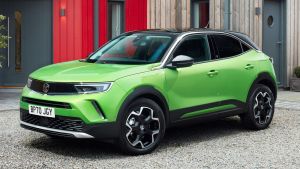
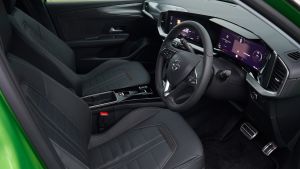
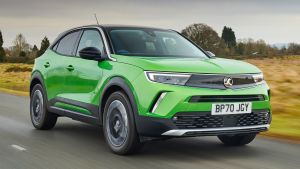
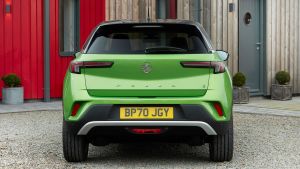
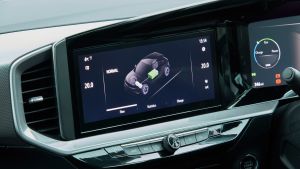
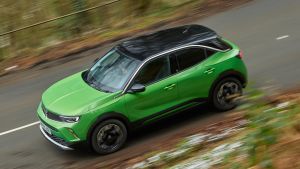
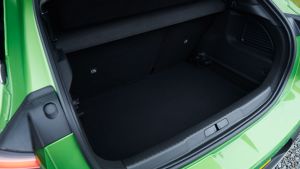
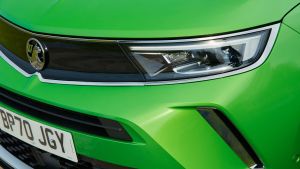
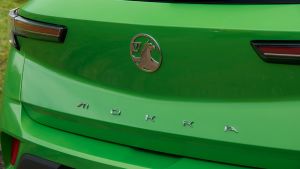
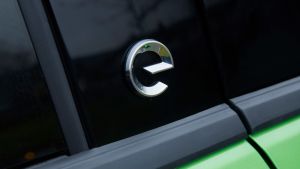
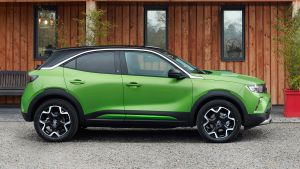
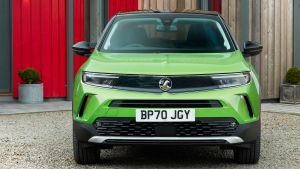
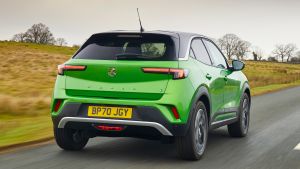
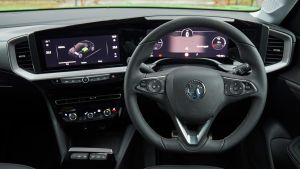
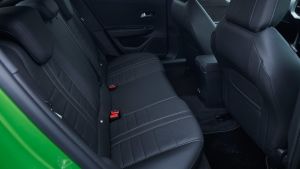
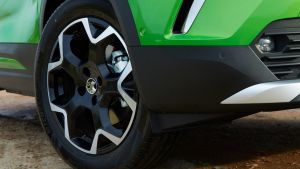
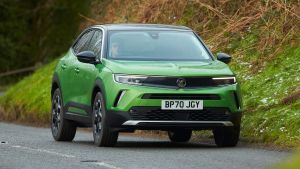
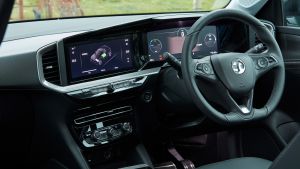
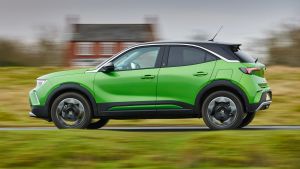
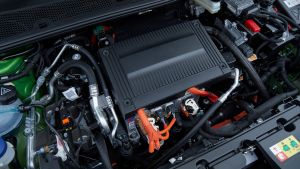
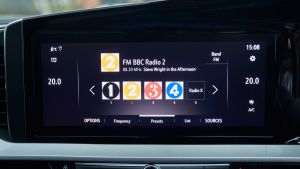
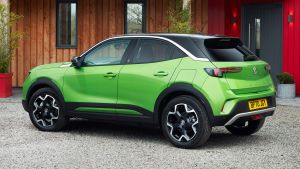
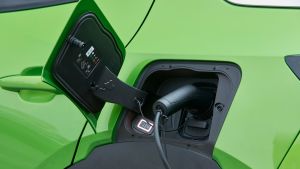
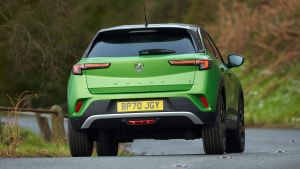
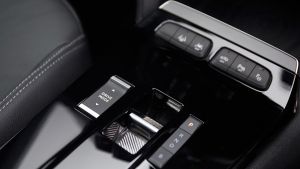
Comments
Post a Comment